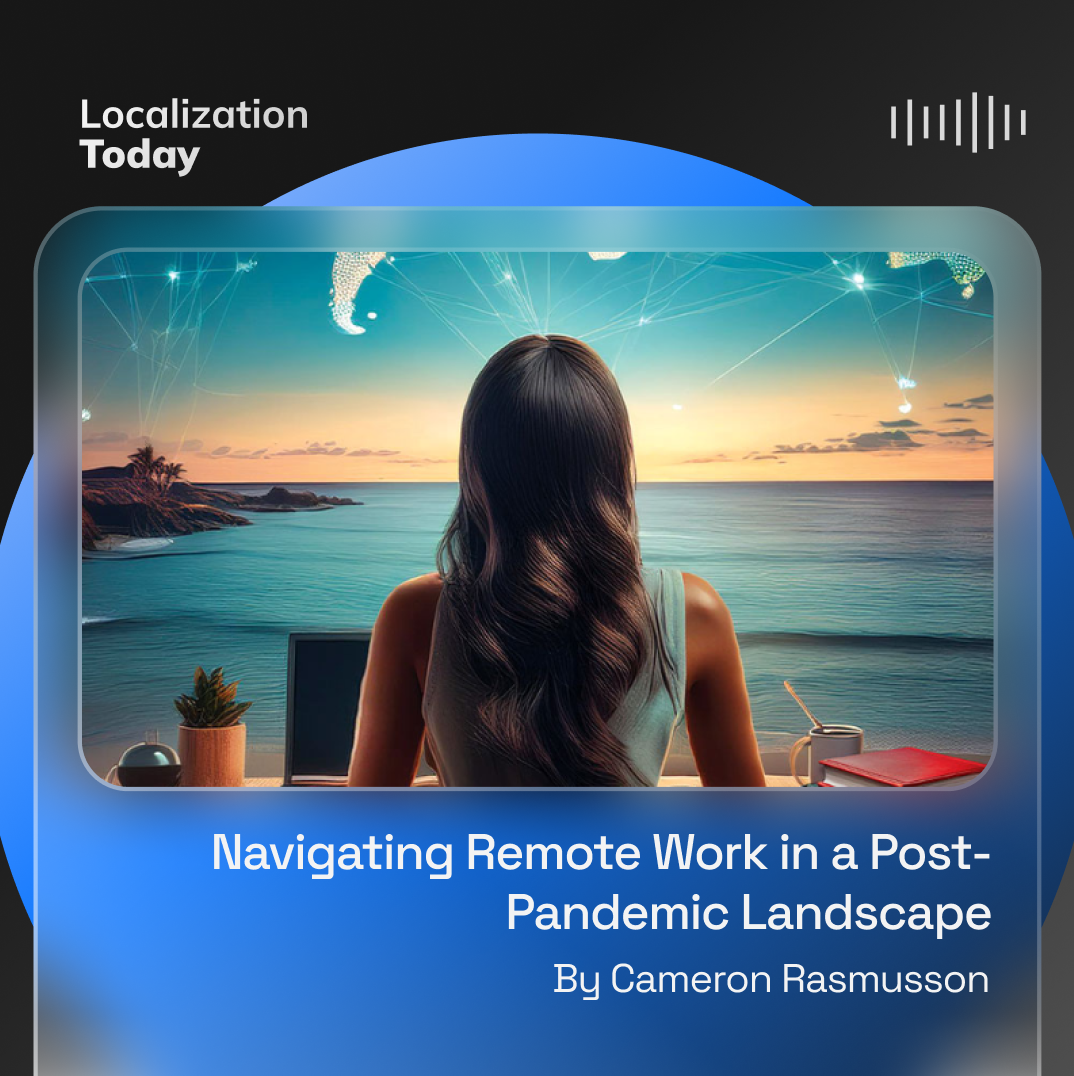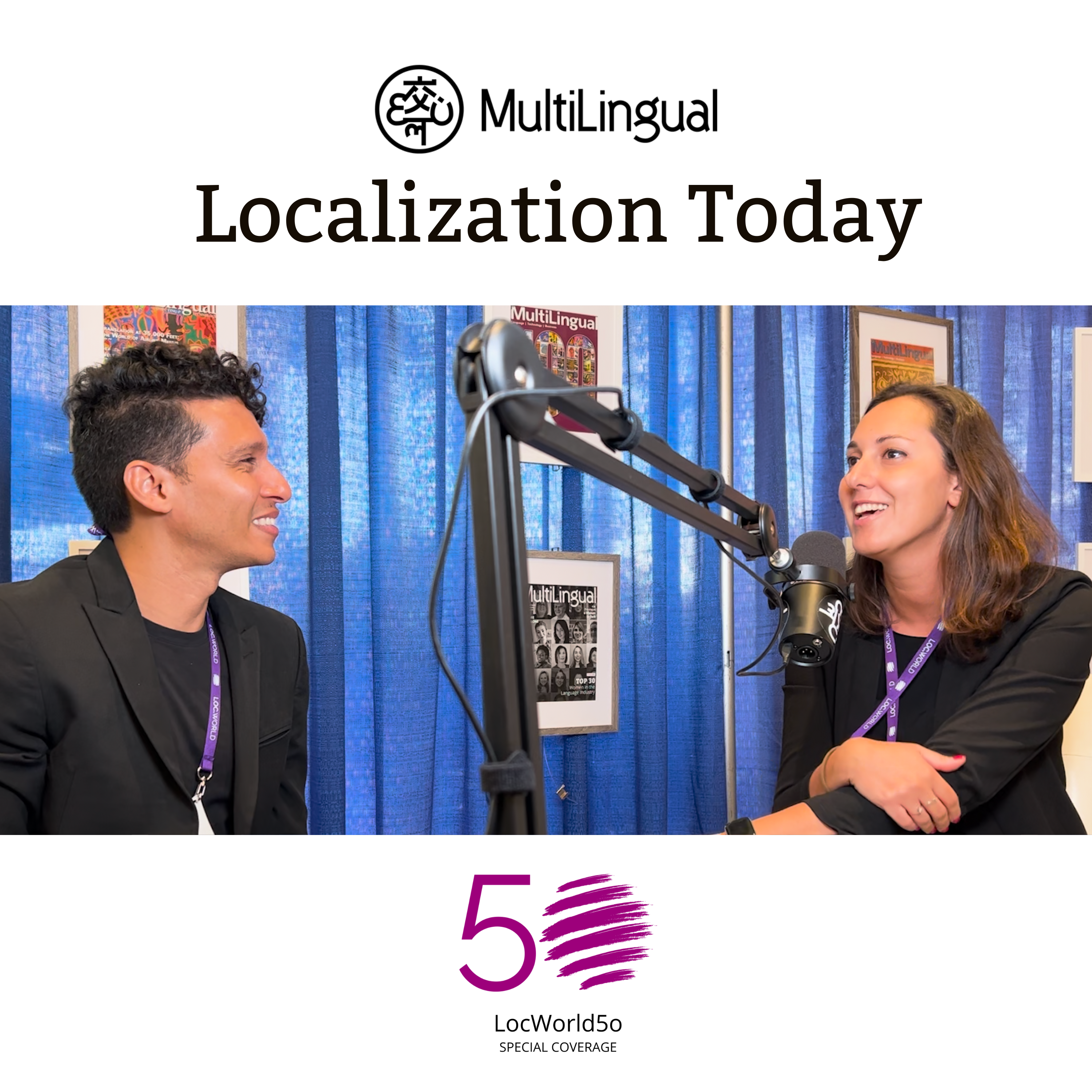[00:00:06] Speaker A: This is localization Today, a podcast from multilingual media covering the most relevant daily news in the language industry.
[00:00:16] Speaker B: Localization to the letter launching World Endangered writing day. By Tim Brooks given that we human.
[00:00:24] Speaker C: Humans have spent much of our existence trying to overrun, conquer, and subjugate each other, localization is a remarkable, even virtuous effort to understand and respect not only another culture's language, but also its history, beliefs, and traditions. The language we speak is, as every translator knows, not just a catalog of words, but an expression of that history, those beliefs, and those traditions. But that's also true in more than 300 ways of the letters and symbols we use to make ourselves known in.
[00:00:57] Speaker B: That visual display we call writing, which.
[00:01:00] Speaker C: Leads us to the invention and inauguration.
[00:01:03] Speaker B: Of World endangered writing day. It's a widely quoted estimate that half.
[00:01:07] Speaker C: Of the world's 7000 odd languages are endangered and may be extinct by the.
[00:01:12] Speaker B: End of this century. It's less widely quoted.
[00:01:15] Speaker C: In fact, this may be the first time you're hearing it, that some 90%.
[00:01:20] Speaker B: Of the world's 300 plus alphabets are likewise threatened. And that, in a nutshell, is the.
[00:01:26] Speaker C: Challenge facing the first world in general, and the localization industry in particular, to recognize and respect and learn to use not only a culture's language, but also.
[00:01:36] Speaker B: The way it shapes its letters.
[00:01:38] Speaker C: Which is exactly the opposite approach adopted by the british colonial authorities when they occupied India.
[00:01:44] Speaker B: For example, official communications were in English.
[00:01:47] Speaker C: Of course, in the latin Alphabet. But India is famously an astonishingly rich stew of languages and scripts, and the British could no more be bothered to learn every language, or especially with the arrival of the first printing presses, accommodate every script than they could be bothered to consent to every political point of view.
In each region, one or possibly more scripts, almost exclusively those used by communities the British felt were more civilized, would.
[00:02:16] Speaker B: Be deemed official, and the rest were ignored. Lest it seemed that as a Brit.
[00:02:21] Speaker C: I am being too anti british. It's worth noting that the portuguese authorities in Goa outright banned the Goikinati script as being subversive and pagan.
[00:02:30] Speaker B: And let's not forget what the Spanish did to the maya. We can still see the long term.
[00:02:36] Speaker C: Effects of these attitudes in the widespread belief that writing is merely a set of symbols that represent sounds, and that another set of symbols might do just as well.
[00:02:45] Speaker B: Or even better. That's really weird when you think of it.
[00:02:50] Speaker C: Nobody describes speech as just a set of sounds representing ideas, or tells the Germans they would be better off speaking French. Those in the translation industry, yes, I'm writing to you. Bless you. Are well aware of not only the nuance of expression but also the profound sense of value and pride such nuance has for those who use it every.
[00:03:12] Speaker B: Day unthinkingly so what is the equivalent in writing when we talk about endangered writing? What exactly is at stake here? World endangered writing day was born when.
[00:03:23] Speaker C: I read that in traditional balinese culture one day a year was dedicated to.
[00:03:27] Speaker B: Respecting and venerating writing on the day.
[00:03:31] Speaker C: Dedicated to the goddess set asvetti nothing written may be destroyed or even a.
[00:03:35] Speaker B: Letter crossed out all the Lantar manuscripts.
[00:03:39] Speaker C: Oblong pages of Lantar palm leaf written on with a stylus and then bound between wooden slats in a household are gathered enact as the representation of the goddess to whom 18 offerings are made one for each of the letters of.
[00:03:53] Speaker B: The balinese Alphabet each offering contains the.
[00:03:57] Speaker C: Symbol of the supreme God made of.
[00:03:59] Speaker B: Fried rice dough this may sound like.
[00:04:02] Speaker C: Superstition but to me it shows a deep understanding of the value and importance of writing especially one's own writing the writing that connects us to our ancestors.
[00:04:11] Speaker B: And our deities our old books end.
[00:04:14] Speaker C: Up on remainder tables or at yard.
[00:04:16] Speaker B: Sales theirs end up on altars world.
[00:04:20] Speaker C: Endangered writing day, then is an observance of writing in all its varied and astonishing manifestations not just as a useful set of symbols but as an extraordinarily expressive range of cultural artifacts and practices just as each individual person's handwriting is an expression of their character their educational tradition even their mood each culture's form.
[00:04:42] Speaker B: Of writing is equally self expressive every.
[00:04:45] Speaker C: Script is shaped over time by the people who use it and is as much an expression of their culture as.
[00:04:50] Speaker B: Their music, art or dance for example, we know of one or more scripts.
[00:04:58] Speaker C: Whose every letter has a secret mystical.
[00:05:00] Speaker B: Meaning that united entire minority communities against colonizers that are essentially cosmic maps that.
[00:05:09] Speaker C: Are taken so seriously that a scribe must recite specific mantras before beginning to write making correction or even opening a.
[00:05:17] Speaker B: Book that were created as the result of dreams, visions or divinely bestowed commands that were devised and used solely by women largely in secret that were so.
[00:05:30] Speaker C: Banned a writer who used them could.
[00:05:32] Speaker B: Be imprisoned have all his property confiscated that were written or incised in bark.
[00:05:38] Speaker C: Palm leaves, bamboo, buffalo horn animal hide stone, wood and even human skin as.
[00:05:45] Speaker B: Tattoos the very shapes of their letters.
[00:05:48] Speaker C: Were influenced by the tools and materials available and so reflect not only their.
[00:05:53] Speaker B: History but also their landscape that have.
[00:05:56] Speaker C: Such spiritual significance if someone in the community dies without having learned to read and write their script the priest sits beside the corpse in the period before cremation and teaches in the Alphabet so.
[00:06:07] Speaker B: It is properly prepared for the afterlife.
[00:06:11] Speaker C: This is the localization challenge and the purpose of endangered writing day, to move beyond the assumption that the convenience of a few global scripts outweighs the value of these scripts to their communities, and to expand the range of our machine and human translations to a level of universal accuracy, yes, but also universal respect.
[00:06:30] Speaker B: What will that look like?
Here's an example of localization, literally to the letter. One of the endangered writing day speakers.
[00:06:39] Speaker C: Is Kajama Chakma, a graduate student at the wonderful graduate program in typography and graphic communication at the University of Reading in the UK.
She is an ethnic Chakma, a people traditionally from Bangladesh and India, with their own language and traditions and script, which is not recognized officially in either country.
[00:06:59] Speaker B: Nor taught in government funded schools. Her ambition is to create a font.
[00:07:03] Speaker C: For her people, a process she takes so seriously that she has already spent the best part of a year researching and rediscovering her marginalized culture, its writing traditions, its collective aesthetic, and its way of understanding and transacting with the world.
Only then will she feel confident she can create a font that does not look artificial or alien.
[00:07:23] Speaker B: But put simply, Chakma World Endangered writing.
[00:07:27] Speaker C: Day, January 23, will feature a daylong series of talks, discussions, short videos, interactive activities, book giveaways, an award ceremony, and even a game and a quiz live.
[00:07:40] Speaker B: Streamed on the endangered alphabets YouTube channel.
For more information, contact
[email protected] this article.
[00:07:51] Speaker C: Was written by Tim Brooks, founder of the Endangered Alphabets Project and author of Endangered Alphabets. His current project is to create a red list of the world's writing systems and originally published in multilingual magazine, issue.
[00:08:05] Speaker B: 223, January 11, 2024.
[00:08:10] Speaker A: Thank you for listening to localization today. To subscribe to multilingual magazine, go to multilingual.com, subscribe.


